What Should I Be Eating
When it comes to looking, moving and feeling at your best…
Nutrition is one of the most influential factors.
And yet, it is also one of the most confusing topics in health & wellbeing.
So today’s podcast is going to keep it nice and simple.
We’re going to break this down into just 2 areas:
The quantity of our intake
The quality of our intake
So, let’s dig in.
Quantity
Calories vs Food Volume
When talking about the quantity of our food intake…
There is a difference between the amount of food on a plate and the caloric value of food.
To illustrate:
I want you to imagine I gave you £100 to go shopping with…
(thanks Harry)
You could go to primark and fill an entire shopping bag with clothes!
Or
You could go to Hugo Boss and buy a t-shirt.
In either scenario, you spent £100.
But at primark, you got a much greater volume of clothes in the bag vs Hugo Boss.
It’s the same with food.
If you had 700 kcal to spend on food.
You could fill a massive dinner plater of vegetables and lean meats…
Or you could have a small bag of pork scratchings.
So…
When we’re talking about the quantity of our food intake,
We’re talking total caloric value, not necessarily just volume on the plate.
How many calories do you need?
It varies massively from person to person.
There are many factors that can influence someone’s calorie requirements:
Gender
Age
Height
Weight
Lean body mass
Activity level
Genetics
And more….
It’s worth noting that your calorie requirements can change at any given time, if any of these factors change.
It will also change, if you change your training goal, perhaps focusing on building strength after a period of losing body fat.
How to do it
Set a calorie target.
There are various formulas and calorie calculators online that can give you a rough idea of where to start.
2. Monitor food intake.
Perhaps weighing it out, counting the calories, and recording that in an app like myfitnesspal.
3. Monitor your Progress / Results.
Scale weight, inches, body fat percentage, progress photos and performance in training over time.
4. Adjust Calorie Target.
When necessary, adjusting your calorie intake to continue getting great results.
I know what you’re thinking…
“Do I have to weigh out my food and count calories, it sounds like a lot of work”
You don’t have to…
There are other ways to monitor and adjust food intake, which may be better suited to certain people.
However…
I have personally been tracking my food intake since 2015, so for 8 years now.
I strongly encourage all my clients to do the same.
Why?
Because it creates awareness.
“Awareness precedes change”
If you don’t accurately know your calorie intake
Then it’s very difficult to change it.
Our ability to successfully manage our calorie intake will determine whether we lose or gain weight over time as well as our overall health, energy and performance.
To me… It’s an investment worth making.
Quality
Now we’ve considered the amount of calories we’re consuming (the quantity)…
Let’s consider what those calories are made up of (the quality).
Macronutrients
All foods are made up of macronutrients.
The 3 macronutrients are:
Carbohydrates (bread, potato)
Protein (Meat, fish)
Fat (oil, nuts)
All of these perform essential functions in the human body.
But to keep it simple, we’re just going to think of carbohydrates and fat as fuel sources for the body.
The most important macronutrient for us to pay attention to is:
Protein!
Protein - is responsible for the growth and repair of cells.
Think of proteins like the little lego bricks that all add up to build an amazing creation.
The body is constantly tying to remove the bricks and create breakdown.
It’s our job to continuously get more bricks to build the body back up.
Or else it can begin to fall into disrepair.
If we don’t replenish enough protein, then we aren’t going to be able to maintain healthy cells.
Our hair goes thin, nails go weak and our muscle tissue can’t repair or grow properly.
This makes protein a very important thing to have for anybody wanting to look, move and feel at their best!
I have never (to date) had a client come to me who wasn’t under-consuming protein.
As a general rule aim to consume:
1 gram per lbs of bodyweight.
This will most likely mean having Protein in every meal.
Micronutrients
When discussing food quality…
It would be remiss of me not to mention, micronutrients.
These is a term for Vitamins and minerals.
I like to follow some general rules here to improve food quality:
Eat the rainbow.
5 Fruits and veggies a day.
Eat fresh wherever possible
The goal is to continuously work on improving our food quality.
But…
Don’t allow yourself to lose sight of Calorie intake or protein intake in the pursuit of optimal food quality.
In Summary
When considering nutrition, simplicity is always best.
We’re looking to bring our food Quantity & Quality into alignment with our goals as consistently as possible.
Start with your calorie intake.
Ensure you have enough protein.
Always strive to improve your nutrient intake and food quality.
Everyday won’t be perfect…
You will have high / low calorie days and eat foods that aren’t highly nutritious, that’s life!
But remember…
It’s not about perfection…. No one will be 100% dialled in, 24/7, 365 days a year .
It’s about being as consistent as you can!
Consistency will get you the results you’re looking for.
Yours in coaching,
Harry
